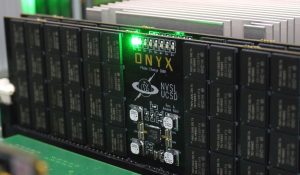


When to Prototype? When to Simulate?
In this blog article we touch the subject of architectural evaluation methodology. We took the effort to interview some experts and collect opinions from experts on this subject. While everyone raises unique points, there seems to be some consensus.. The picture...
SIMD Instructions Considered Harmful
In the process of writing a short introduction to RISC-V, we compared RISC-V vector code to SIMD. We were struck by the insidiousness of the SIMD instruction extensions of ARM, MIPS, and x86. We decided to share those insights in this blog, based on Chapter 8 of our...
Leave your OS at home: the rise of library operating systems
The efficiency of Operating Systems (OSes) has always been in the spotlight of systems researchers, ever since the seminal Dijkstra’s THE multiprogramming system in early 60s. But the reason for this obsession is not entirely obvious. While the OS is commonly...
Worth the Read
Increasing diversity in the broad field of computing is an ongoing challenge. Although many people are aware of the “google memo”, I don’t think many SIGARCH (and adjacent SIG) members are aware of a rebuttal by John Hennessy, Maria Klawe, and David...
Overwhelming Statistical Evidence That Our Review Process Is Broken
I have been saying that over-positive PC (OPPC) members’ high scores mess up the paper rankings, the coverage of online discussions (lower-score papers are ignored), and the discussion order at the PC meeting. Previously I had analyzed only the pre-rebuttal score distributions but not the impact on the actual outcomes. Now, I have statistical evidence of the impact.

Towards Predictable Performance for Interactive Workloads
… today it is hard for software developers to drill down to determine the root causes of performance fluctuations.

A Follow-up to “The Unreasonable Ineffectiveness of Machine Learning in Computer Systems Research”
I am grateful to everyone who responded to my post in April that asked why machine learning has had limited impact on computer systems research. In addition to commenting on this website and sending me email, people discussed this question at length on reddit and...
A Decade of Mobile Computing
The smartphone is the most pervasive mobile computing device on the planet. There are over 2.1 billion devices worldwide, and this number is rising sharply as smartphone penetration increases in emerging markets like China and India. By 2020, there will be 6 billion...

